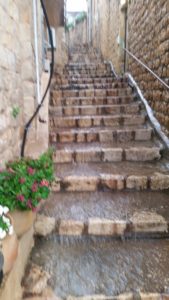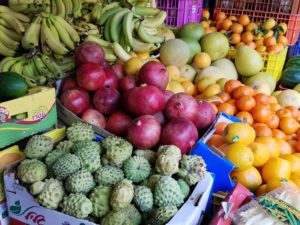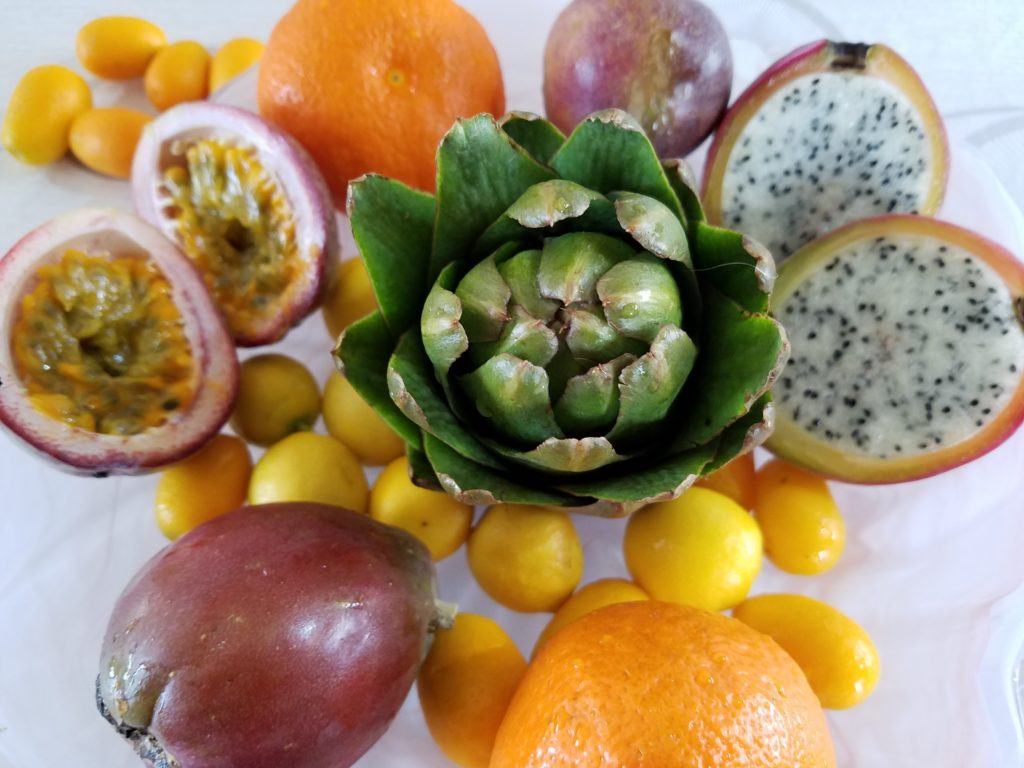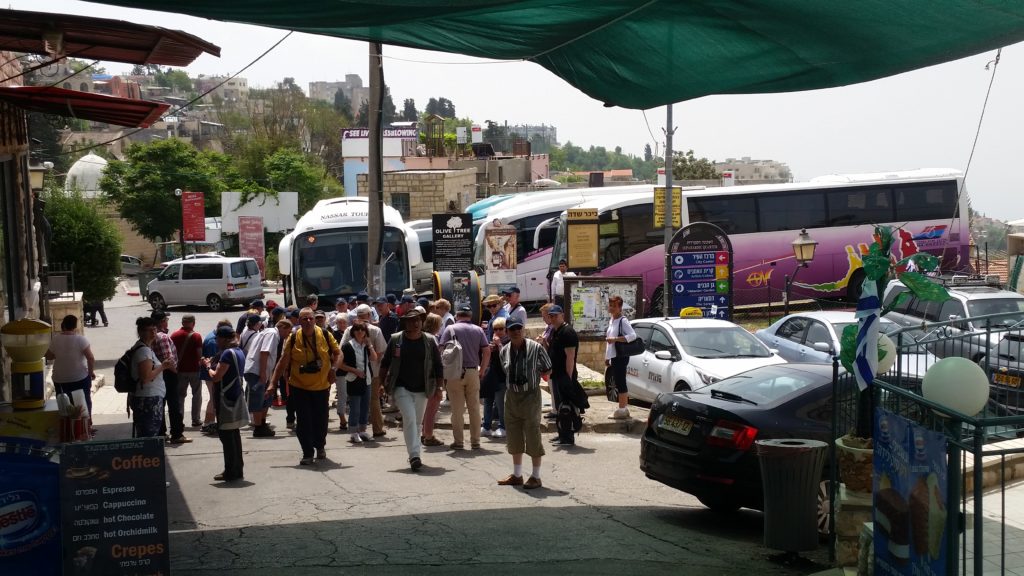
It is a rainy season in Israel, but nobody complains about the rain here, it is considered a blessing, both in a direct and symbolic sense. The country depends on the rain for water supply and agriculture, and it only rains here in the winter. After Passover and until Rosh Ha Shana there is almost no rain at all. Our town is all steps and hills, and when it is raining, there are streams of water and waterfalls everywhere, but all people are saying is “Thank G-d it is raining!”

Another sign of the season is the abundance of winter fruits and vegetables. No fruit that we get is grown more than four hours away by truck, and when we get them, they are picked fresh, at most a few days before we buy them. By the same token, if something not in the season, we usually don’t get it, although some fruits are imported. There are a lot of fruit growing right on the streets, there are olive, lemon, pomegranate, fig trees with branches full of fruit. The ground underneath is sometimes covered with fruit that had not been picked. One can pick fresh fruits off the trees, but needs to know how to separate trumot and maasrot (tithes for cohen, levi and the poor) and to make proper blessings before eating it. Fortunately, when you move to Israel you learn the process pretty quickly. Our new favorites of the winter season are annona (also called in US cheremoya or custard apple; reminiscent of vanilla ice cream, only better), passion fruit, persimmons, kumquats and pomellos; and for vegetables – artichokes. But tasting and smelling even regular fruit and vegetables, like cucumbers and tomatoes, is unlike anywhere else in the world, and is a small experience of Gan Eden to the extent that one is able to experience it.

Yet another seasonal sign is tourists. In Tzfat after Chanukkah it’s just regular days (no holidays) until Tu BShvat, which falls on January 21 this year; but seeing many Jewish American tourists reminds us that there is such a thing as a Holiday Season in the US, when people often travel. They come to Tzfat to get inspiration, to revive their Jewish life. Sometimes we stop to talk to them, and Eber always tells them: “Want a real Jewish life? Move to Israel!”

